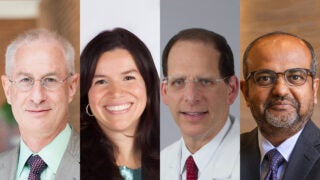Diversity week at USC celebrates spirit of inclusion
Now in its fourth year, Diversity, Equity and Inclusion Week offers more than 70 sessions designed to bring USC communities closer together.
USC’s Diversity, Equity and Inclusion Week will offer more than 70 sessions this year, all intended to foster conversations about inclusion. Issues involving race, disabilities, gender, military veterans, first-generation students and generational differences will be addressed.
“We wanted to create a cross-pollination of ideas, a forum where people could share their successes and mistakes to come up with new, innovative programming about diversity,” said Camille Rich, associate provost for faculty and student initiatives. “We put together an event where experts can showcase their talents and ideas and have productive conversations that lead to culture change.”
All we’re asking is an hour of your time to broaden your worldview.
Camille Rich
DEI Week brings faculty from all USC schools together to share diversity initiatives. Most sessions are open to faculty, staff, students and alumni. The series runs throughout the week of March 2 at venues around campus. Information and schedule are available on the event website, which also offers an app.
Inclusion is a major push for USC’s Undergraduate Student Government, which will hold a Diversity Council panel and discussion on the last day of the series.
“It’s important to have conversations about additional spaces and resources for different groups,” said USG Vice President Mahin Tahsin. “We want to bring diverse people from around the world to USC, but we need to follow up and make sure they’re supported the whole way.”
DEI Week is well-attended, but Rich would like to encourage more members of the USC community to join one of the sessions, film screenings or workshops.
“All we’re asking is an hour of your time to broaden your worldview,” Rich said. “Everyone has some aspect of their identity that makes them feel excluded from time to time. If we take time to understand those differences, we’ll have a closer, stronger, more harmonious community.”



